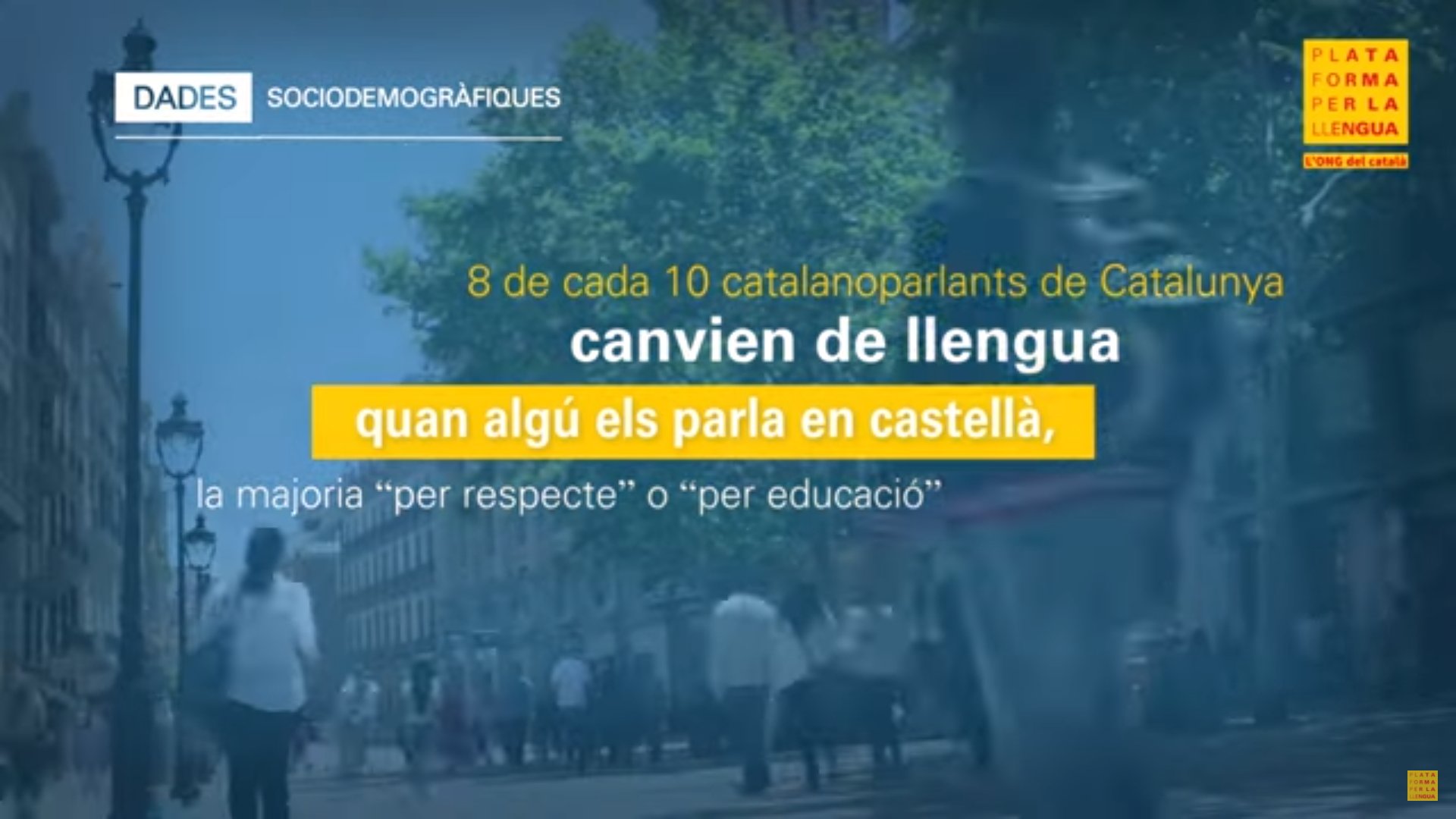The critical situation of the Catalan language has become a subject of permanent debate between Catalonia's public and the political class. However, time passes and the condition of Catalonia's own language does not improve, but quite the opposite. This deterioration was denounced this Wednesday by the pro-Catalan language NGO, Plataforma per la Llengua ("The pro-Language Platform") in the presentation of its InformeCAT 2021, a collection of 50 statistical facts on the situation of Catalan throughout all of the Catalan-speaking lands and in Andorra. One of the most striking of the statistics is the following: 8 out of 10 Catalan speakers switch languages when someone speaks to them in Castilian.
This emerges from a survey commissioned by the Plataforma with the GESOP survey agency. In the language-switching situation, when a Catalan speaker enters into communication with a Spanish speaker, 43.5% of Catalan speaking respondents say they change "out of respect" or "out of politeness". The second most frequent cause of changing languages, cited by 16.3%, is because the Catalan speaker believes that they may not be understood if they carry on in Catalan.
It should be borne in mind that Catalan speakers represent only 32.4% of the population of the study area - the Catalan countries and Andorra - according to data from January 1st, 2020. That is, just under a third. Breaking this down into territorial units, it can be seen that none of them have Catalan as their majority language. Proportionally, the Franja - the Catalan-speaking "strip" in Aragon - is the territory with the most Catalan speakers, at 49.6%, followed by Andorra, with 37.9%, the Balearic Islands with 36.8%, Catalonia with 36.1%, the Valencian Country with 28.1% in its Catalan-speaking part, l'Alguer in Sardinia with 9.1%, and Northern Catalonia - in the French Republic - with 1.3%.
The institutions, shown up
The Plataforma also pointed a finger of blame at the institutions and, more specifically, the Generalitat of Catalonia, whom it has accused of "relaxing" in recent years - despite the independence process - with its guardianship for the Catalan language. In fact, only 1 in 3 Catalan speakers think that the Catalan government protects the language more now than before the drive for independence began. Specifically, 41.7% of respondents stated that the language was more protected by the administration before the independence process. By contrast, 30.9% think they are more protected now and 15.3% believe the situation is the same.
Another example highlighted has been Catalonia's Cinema Law, which, according to the NGO, has been breached by the Generalitat itself for ten years. The report also indicated that 9 out of 10 products fail to comply with Catalan regulations that require labeling in Catalan.
The body is also strongly critical of Spain, which it accuses of continuing to discriminate against Catalan "imposing Castilian by norm"."Only 1% of the official websites of the Spanish administration have a complete version in Catalan and only one of the 214 courts in the Valencian Country usually works in that territory's own language," says the report.
The French state also comes in for criticism from the Plataforma's report, which notes that although the French National Assembly passed - with 72% of votes - a law that sought to guarantee Catalan teaching in Northern Catalonia by the language immersion method, this was thrown out by the French Republic's constitutional council.

Main image: Presentation of Plataforma per la Llengua's 'InformeCAT 2021' / Photo: Marc González

